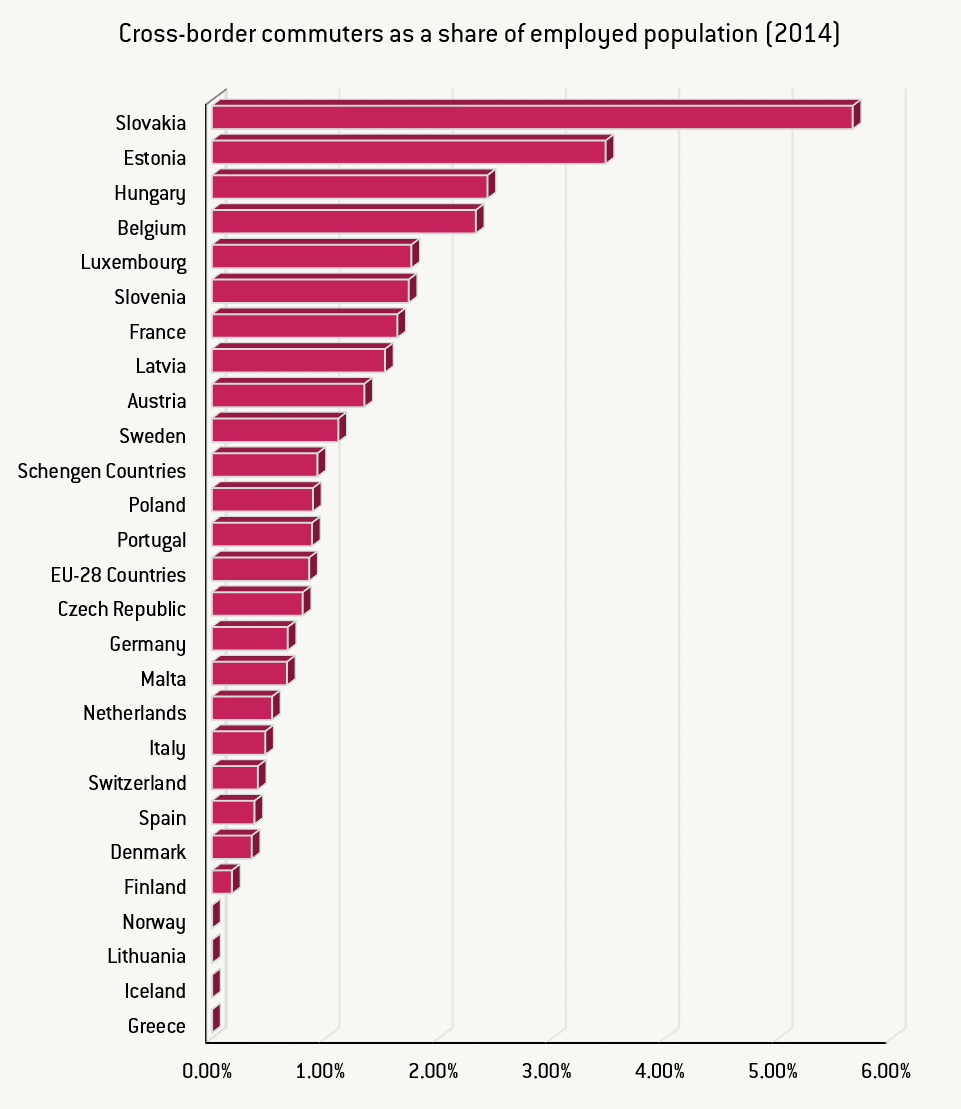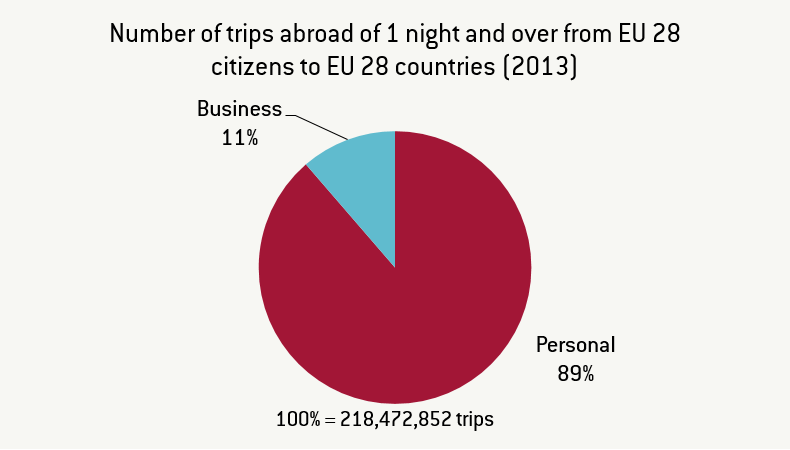Cross-border commuters and trips: the relevance of Schengen
Almost 1.7 million Schengen residents were cross-border commuters in 2014.
These charts show data on commuting in the Schengen area and intra-EU tri
Many workers rely on the Schengen agreement that allows them to cross the border without any ID controls. Almost 1.7 million residents from Schengen countries crossed the border to go to work in 2014. As can be seen in the chart below, 0.93% of the employed citizens living in Schengen countries work across the border. The share of cross-border commuters is particularly high in Slovakia (5.7%), Estonia (3.5%), Hungary (2.4%) and Belgium (2.3%).

Source: Eurostat
Please note that these figures represent the share of a country's employed residents who commute out of the country to go to work.
The Schengen agreement’s relevance stretches beyond cross-border commuting to work. In 2013, EU-28 citizens made over 218 million trips of one night and over to other EU-28 countries, almost 25 million (11%) of those were for business purposes.

Source: Eurostat
Overall, the numbers show that many people benefit from the Schengen agreement – they would notice its abolition in their daily lives. What makes the debate on Schengen so relevant are not the direct macroeconomic implications of its possible abolition, it’s the visible and powerful symbol of European integration that Schengen represents and the potential further consequences in terms of labour mobility.



